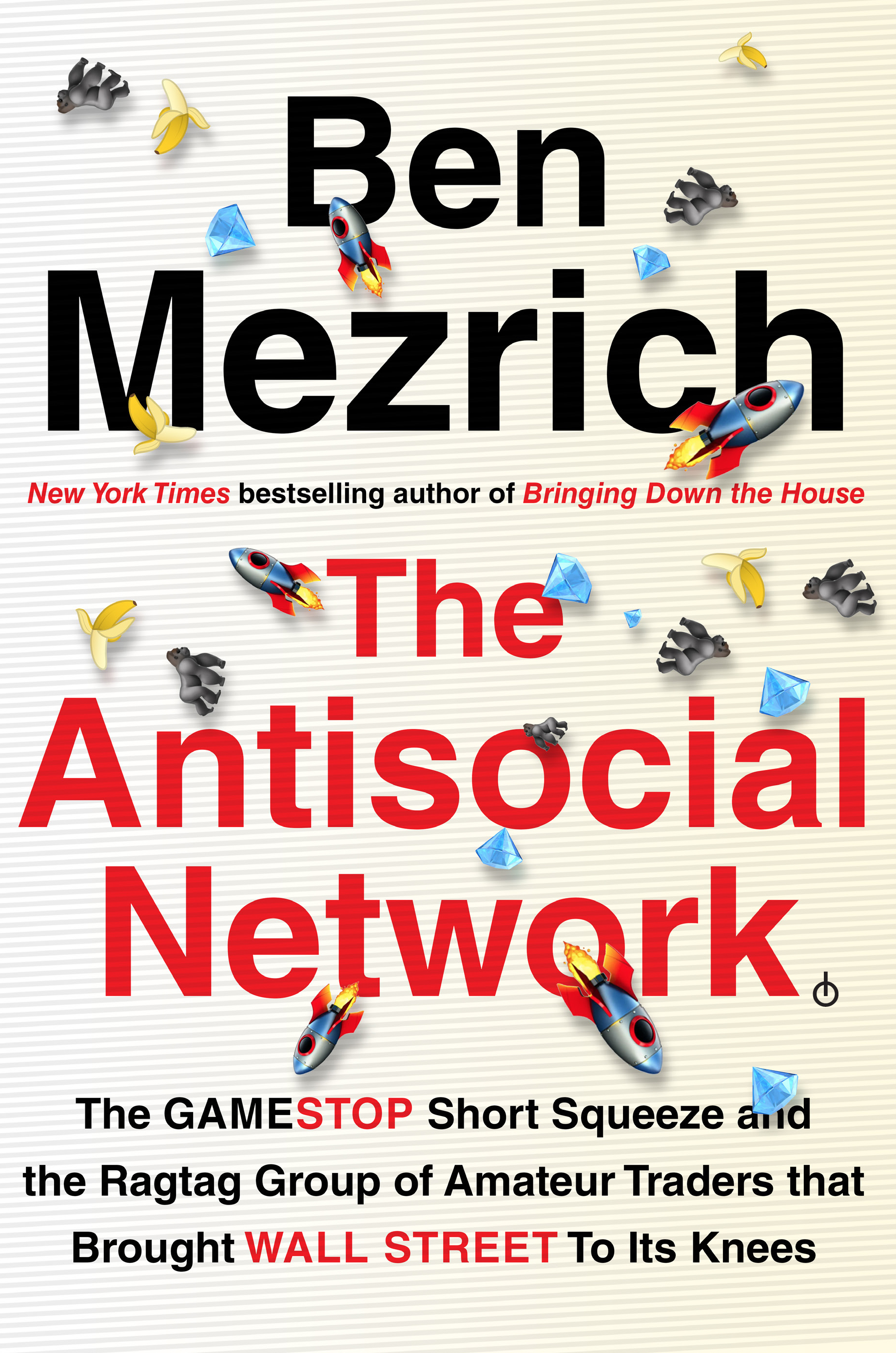A new suite of business books take on organizations so huge they encroach into territory historically held by government agencies and society as a whole. These titles examine how the consolidation of power across a few big companies, with tech and just-in-time fulfillment retail at the helm, are changing how America sells, trades, and earns.

Amazon Unbound
Bloomberg News journalist Stone offers an update of sorts to 2013’s The Everything Store, “an entertaining, insightful, behind-the-scenes account of the e-commerce revolution,” PW’s review said, which has sold 126,000 print copies. Eight years later, his new book covers the evolution of Bezos’s behemoth into what the subtitle calls a “global empire” that delivers not only retail goods but also groceries, web services, entertainment, and pretty much anything else.

The Antisocial Network
Mezrich (Bringing Down the House, The Accidental Millionaires) takes on one of the more bewildering stories of the year, even by 2021 standards: a collaboration of amateur investors who banded together on the WallStreetBets subreddit to drive up the price of GameStop, largely via the RobinHood app, and destroy a hedge fund. This populist drama continues to unfold.

Arriving Today
In a world where people can order virtually anything and have it delivered by evening, most consumers don’t give a second thought as to what makes that instant gratification possible. Wall Street Journal columnist Mims tracks products from creation to delivery, exposing the rapid changes in factories, transportation, and fulfillment—and the human cost thereof—that satisfy shoppers’ need for speed.
Big Vape
A Silicon Valley success story became a health crisis when two graduate design students created Juul in an effort to kick their smoking habits, and ended up heavily marketing an addictive product to teens, tens of thousands of whom became hooked. Ducharme, a health and science writer for Time, earned a starred review from PW for this debut: “Fast-paced and impressively researched, this detailed account sings.”
more
Fair Pay
Nike global compensation director Buckmaster offers a thorough overview of how pay scales and structures are determined, and how and why companies are so bad at appropriately compensating workers. (Hint: inertia, not malice.) PW’s starred review said “this layperson’s guide will be a boon.” (See our q&a with Buckmaster, “Pay Is a Function of Proximity to Power.”)
more
Fulfillment
This “cogent and wide-ranging study” (per PW) by ProPublica reporter MacGillis focuses on the human end of one-click fulfillment, profiling areas across the country affected by Amazon’s rapid sprawl. Gentrifying neighborhoods in Seattle, cardboard box companies saved or lost by Amazon’s patronage or lack thereof, and towns jockeying to be the location of fulfillment centers flesh out this snapshot of the Amazon effect.
more
The Raging 2020s
Ross, a technology policy strategist and the author of 2016’s The Industries of the Future, which PW called “astute and enlightening,” challenges the diminishing separation of government, citizens, and private enterprise in this discussion of market consolidation, proposing a rebalanced social contract.
System Error
Three Stanford professors address the challenges of increasing automation and the preponderance of Big Tech. This may be optimal for capitalism, they argue, but not for society—and a close look at the impact on our values and on society at large, they say, is overdue.













